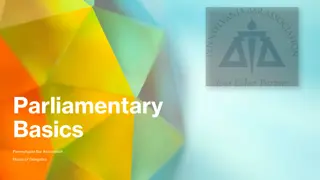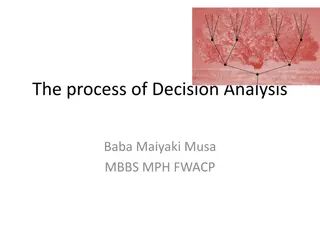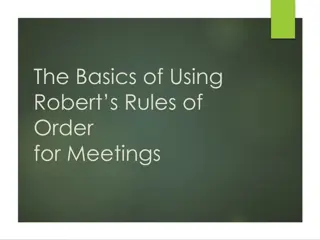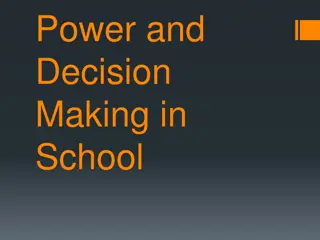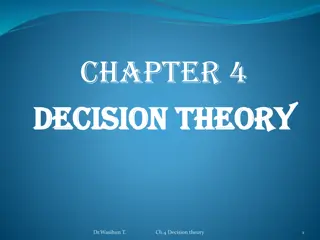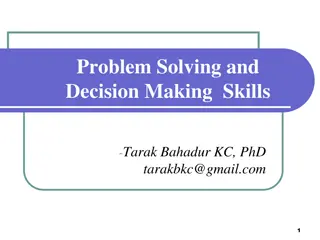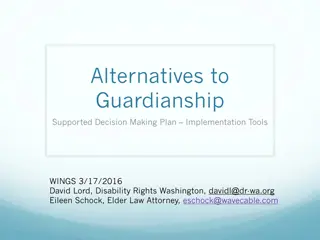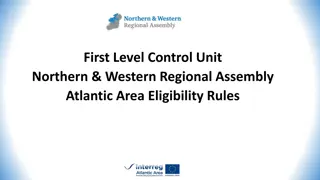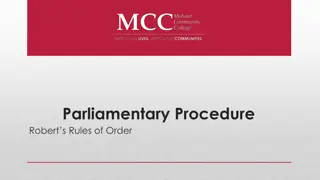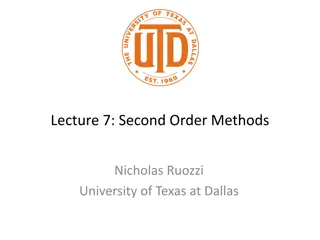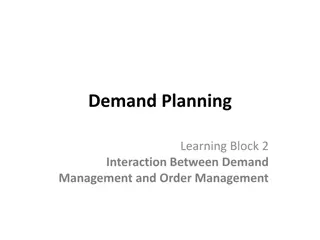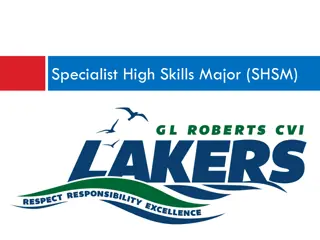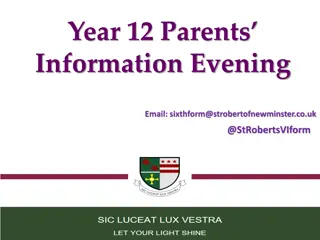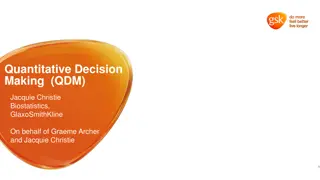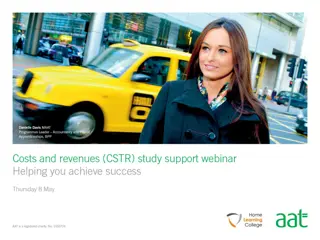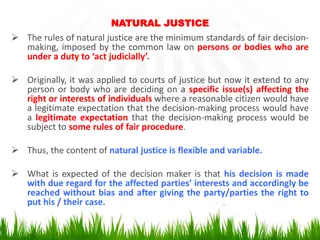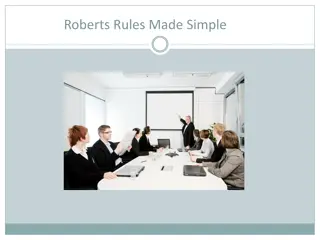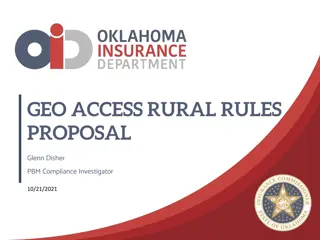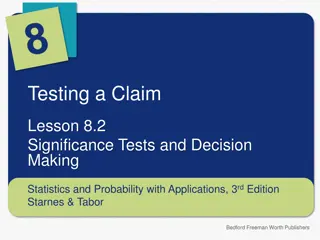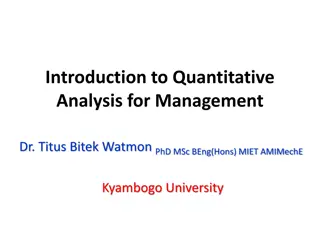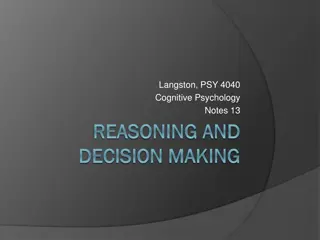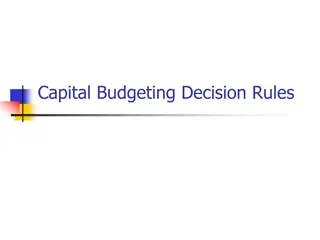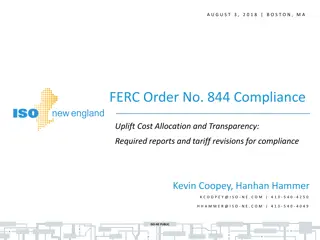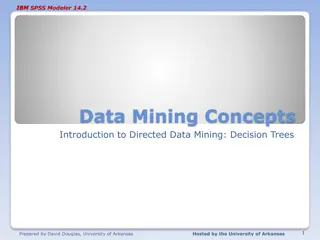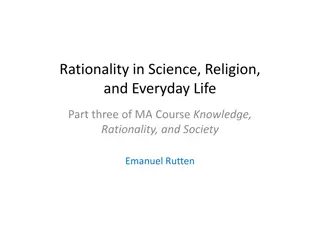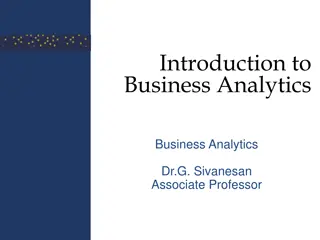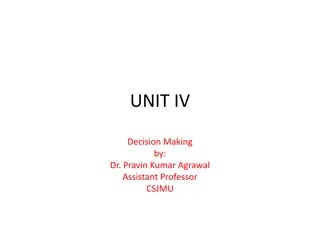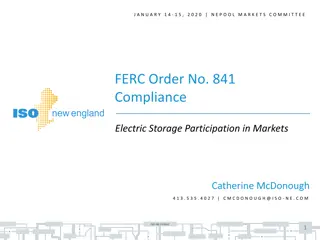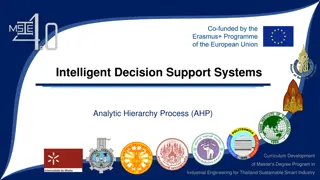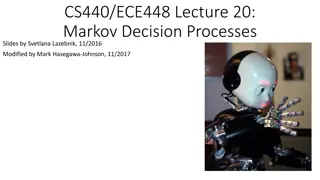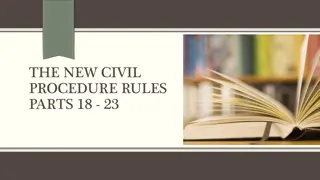Understanding Roberts Rules of Order in Decision-Making Processes
Learn about Robert's Rules of Order, a system of parliamentary procedure that helps maintain order and fairness in decision-making. This article covers the basics, including who uses these rules, the key principles, how motions are presented, and more. Whether you're involved in school boards, city councils, or other organizations, understanding these rules can enhance your participation and decision-making processes.
Download Presentation

Please find below an Image/Link to download the presentation.
The content on the website is provided AS IS for your information and personal use only. It may not be sold, licensed, or shared on other websites without obtaining consent from the author. Download presentation by click this link. If you encounter any issues during the download, it is possible that the publisher has removed the file from their server.
E N D
Presentation Transcript
What About Bob?? Again?? Presented By: William S. Donio, Esq. Cooper Levenson, P.A. Cooper Levenson, P.A.
Todays Agenda! Introduction on Robert s Rules Motions Voting Process Case Law Cooper Levenson, P.A.
What are Roberts Rules? Robert s Rules of Order ( Robert s Rules or RONR ) Originally published in 1876, now in its 11th Edition Written by U.S. Army General Henry Martyn Robert Present Day Codification of Parliamentary Procedure Helps to maintain order and ensure fairness in decision making process Cooper Levenson, P.A.
Who uses Roberts Rules Non-legislative governing bodies at the local level: School Boards City Council Organizations: Fraternal organizations Golf & country clubs Homeowner associations Nonprofit associations Professional societies Scientific organizations Service organizations Sports leagues Student governments Teacher associations Unions Cooper Levenson, P.A.
Basic Principles Someone must facilitate All members have the right to bring up ideas Members should come to an agreement about the course of action Majority rules, but the minority has a right to speak and vote Address one item at a time Cooper Levenson, P.A.
Motions Cooper Levenson, P.A.
Motions Formal proposal of action Board should take; Make motion before discussing merits (person who makes motion may discuss it first); Motion contains : - Who, What, When Cooper Levenson, P.A.
How are Motions Presented? 1. Obtaining the floor a. Wait until the last speaker has finished. b. Rise and address the President by saying, "Mr./Ms. President." c. Wait until the President recognizes you. 2. Make Your Motion a. Speak in a clear and concise manner. b. Should state a motion affirmatively. Say, "I move that we ..." rather than, "I move that we do not ...". c. Avoid personalities and stay on your subject. 3. Wait for Someone to Second Your Motion Cooper Levenson, P.A.
How are Motions Presented? (con t.) 4. Another member will second your motion or the President will call for a second. 5. If there is no second to your motion it is lost. 6. The Chairman States Your Motion a. The Chairman will say, "it has been moved and seconded that we ..." Thus placing your motion before the membership for consideration and action. b. The membership then either debates your motion, or may move directly to a vote. c. Once your motion is presented to the membership by the chairman it becomes "assembly property", and cannot be changed by you generally without the consent of the members. Cooper Levenson, P.A.
How are Motions Presented? (con t.) 7. Expanding on Your Motion a. The time for you to speak in favor of your motion is at this point in time, rather than at the time you present it. b. The mover should be allowed to speak first. c. All comments and debate must be directed to the President. d. Keep to the time limit for speaking that has been established. e. The mover may speak again only after other speakers are finished, unless called upon by the President. 8. Putting the Question to the Membership a. The President asks, "Are you ready to vote on the question?" b. If there is no more discussion, a vote is taken. c. On a motion to move the previous question may be adapted. Cooper Levenson, P.A.
Motion Basics If you make a motion you are required to vote in the affirmative on that motion. - Not Second Once a motion is voted down you cannot just re-vote. Timing is Everything! - Exceptions Cooper Levenson, P.A.
Types of Motions Main Motions Used to introduce new ideas at a meeting. Madam President, I move that Mr. Chair, I move to Subsidiary Motions- Amend Motion (change, add, or omit) Postpone Refer to a Committee Limit or extend Debate Cooper Levenson, P.A.
Types of Motions (cont.) Privileged Motions Adjourn , Recess Requires a 2nd. Majority vote. Raise a question of privilege Allows such things as to request changes to room temperature, clarification of ideas...anything to help the meeting run smoothly. Madam President, I raise a question of privilege Chair s decision, requires no vote. Majority overrule. Cooper Levenson, P.A.
Types of Motions (cont.) Incidental Motions -Appeal Reverse erroneous decision of chair Requires a second Not amendable Debatable Majority Use sparingly -Division of a Question Split a motion into 2 questions Cooper Levenson, P.A.
Board Bylaws and Policy They likely states something such as: Roberts' Rules of Order, Newly Revised, shall govern the Board of Education [Your Board] in its deliberations and acts in all cases in which it is not inconsistent with statutes of the State of New Jersey, rules of the State Board of Education, or these bylaws . Check them out! How important are they??? Cooper Levenson, P.A.
Can the Board Change its Mind? Yes, it can be done: -Rescind -Renew -Up or Down Vote Cooper Levenson, P.A.
Motion to Rescind 35 of Robert sRules Provides that a motion to rescind is a motion by which a previous action or order can be canceled or countermanded. The effect of Rescind is to strike out an entire main motion, resolution, order, or rule that has been adopted at some previous time. RONR, (11th ed.), p. 305. Takes precedence over nothing and can therefore be moved only when no mother motion is pending. Yields to subsidiary, privileged, and incidental motions. Cooper Levenson, P.A.
Motion to Renew Robert s Rules provides that a Motion previously considered may be brought before a public body again if it is substantially different. RONR, (11th ed.), p. 336, 10-15. A previously considered motion may become a substantially different question through a significant change in the wording or because of a difference in the time or circumstances in which it is proposed. Id. at 12-15. Cooper Levenson, P.A.
Motion to Amend The motion to amend something previously adopted: Can be applied to any main motion previously adopted (provided none of the action involved has been carried out in a way which it is too late to undo); Must be seconded; is debatable and amendable; and Can be moved by any member regardless of how he voted on the original question. Friendly Amendment Cooper Levenson, P.A.
Motion to Reconsider A Motion to Reconsider allows a public body to consider again a motion on which a vote has been previously taken. Purpose is to permit correction of hasty, ill-advised, or erroneous action, or to take into account added information or a changed situation that has developed since the taking of the vote. RONR, (11th ed.), p. 315, 20. Requires a majority vote, regardless of the vote necessary to adopt the motion reconsidered. Cooper Levenson, P.A.
Motion to Reconsider Cannot be reconsidered. No motion may be reconsidered more than once unless amended during the previous reconsideration. Cooper Levenson, P.A.
Motion to Reconsider Takes precedence over any other motion (even if another motion is pending or the group has voted to adjourn but the chair has not yet declared the meeting adjourned); Must be seconded by any member; is debatable but NOT amendable; and Must be made by a person who voted with the prevailing side. Cooper Levenson, P.A.
Voting and Related Issues
Number of Votes Required Supermajority Votes Established by the Legislature Majority of the full/authorized membership of the board Two-thirds of the full/authorized membership of the board Three-quarters of the members present
Number of Votes Required Supermajority Votes? Board may not require supermajority vote unless statute specifically provides; thwarts the will of the majority to require a greater vote than required by statute. Matawan Teachers Assn v. Bd of Ed. 223 N.J. Super. 504 (App Div. 1988)
Matawan Regional Teachers Association v. Matawan-Aberdeen Regional School District Board of Education (con t.) Administrative Law Judge ( ALJ ) summarily dismissed the claim that the bylaws barred adoption of the plan. The Commissioner of Education and the State Board of Education affirmed the ALJ's summary dismissal. On appeal, the issue was whether a local school board may lawfully adopt a plan, which includes the closing and sale of a school building, by a majority vote of its full membership after consideration at a single public meeting even though its bylaws require adoption by a 2/3 vote of its full membership after consideration at two public meetings. Cooper Levenson, P.A.
Matawan Regional Teachers Association v. Matawan-Aberdeen Regional School District Board of Education (con t.) HELD: The board is not bound by the bylaw that limits the authority of the majority, but is bound by the bylaw that requires two public meetings for adoption of the plan. Cooper Levenson, P.A.
MatawanCourts Reasoning Supermajority Requirement - Preempted The Legislature gave power to boards of education to adopt/effectuate their own by-laws/policies. N.J.S.A. 18A:20-5 Thus it preempted a local board's authority to strike the balance between requiring a broad consensus for action and the attendant risk of inaction. So the Board may not require a supermajority vote of the Board on any issue unless a statute specifically provides for same. Two Public Hearings Requirement- Public Policy Supports it Purpose is to assure that those having that responsibility and authority act only upon due deliberation after notice to the public and interested third parties. Public Policy. Cooper Levenson, P.A.
Matawan Regional Teachers Association v. Matawan-Aberdeen Regional School District Board of Education 223 N.J. Super. 504 (App. Div. 1988) Dispute arose when the nine (9) members of the Matawan- Aberdeen Regional School District Board of Education voted 5 to 4 to reorganize the school district by adopting "Plan C" (the plan). Plan C was the closing and sale of a school and an administration building. Union representing board employees, and 92 resident-taxpayers of the district alleged that Board s bylaws barred the adoption of the plan: - No policy shall be adopted by the Board until it has received a 2/3 vote of the full Board at two public meetings. - Bylaws shall be adopted, amended or repealed by a 2/3 vote of the full Board. Cooper Levenson, P.A.
Actions Require: A recorded roll call vote and an affirmative vote of a majority of the full membership of the board. 1. bonds from salaries of participating employees (N.J.S.A. 18A:16-8). Directing the Board Secretary to make deductions for United States government 2. Appointing and fixing the salary and term of a Board Secretary (N.J.S.A. 18A:17-5). 3. Appointing and fixing the salary and term of an Assistant or Acting Board Secretary (N.J.S.A. 18A:17-13). 4. Appointing and fixing the term of a Superintendent of Schools (N.J.S.A. 18A:17-15). 5. Appointing or removing an Assistant Superintendent of Schools (N.J.S.A. 18A:17-16). 6. Appointing and fixing the term of an Administrative Principal (N.J.S.A. 18A:17-20.5). 7. Appointing and fixing the term of a shared Superintendent or a shared School Business Administrator (N.J.S.A. 18A:17-24.3). (Please note that this particular statute only requires a majority of the membership. Cooper Levenson, P.A.
Actions Require: A recorded roll call vote and an affirmative vote of a majority of the full membership of the board. 8. Appointing or removing and fixing the salary of a Business Manager in a Type I school district (N.J.S.A. 18A:17-25). 9. Appointing an executive superintendent in districts in cities of the first class with a population over 325,000 (N.J.S.A. 18A:17A-1). 10. Disposing of lands owned by the board, or rights or interests therein (N.J.S.A. 18A:20-5). 11. Exchanging lands owned by the board (N.J.S.A. 18A:20-8). 12. Adopting a budget in Type II districts having a Board of School Estimate (N.J.S.A. 18A:22-26). 13. Fixing and determining the amount of money to be voted upon by the voters of the district at or after the public hearing on the school budget for Type II districts without a Board of School Estimate (N.J.S.A. 18A:22-32).
Actions Require: A recorded roll call vote and an affirmative vote of a majority of the full membership of the board. 14. Adopting the question(s) to be submitted to the voters concerning any capital project(s) to be paid for from the proceeds of an issue of bonds in Type II districts without a Board of School Estimate (N.J.S.A. 18A:22-39). 15. Adopting a proposal for the issuance of school bonds by Type II districts having a Board of School Estimate (N.J.S.A. 18A:24-l0b). 16. Transferring a teaching staff member (N.J.S.A. 18A:25-1). 17. Restoring or removing an Assistant Superintendent, principal or teacher, following suspension by the Superintendent of Schools (N.J.S.A. 18A:25-6). (Please note that this particular statute only requires a majority of the membership. 18. Appointing a teaching staff member (N.J.S.A. 18A:27-1). 19. Appointing, transferring, removing or renewing the employment contract of a certificated or non-certificated officer or employee (N.J.S.A. 18A:27-4.1). 20. Withholding, for inefficiency or other good cause, a prescribed employment or adjustment increment (N.J.S.A. 18A:29-14). 21. Adopting or altering a course of study (N.J.S.A. 18A:33-1) and Selecting textbooks (N.J.S.A. 18A:34-1).
Actions Require: A recorded roll call vote and an affirmative vote of a majority of the full membership of the board. 23. Applying for membership in an already established county educational audiovisual aids center (N.J.S.A. 18A:51-11) 24. Applying to the county superintendent to investigate the advisability of withdrawing from a regional district (N.J.A.C. 6A:32-11.1). (Note that in this case, the roll call majority vote is required by administrative code provision. This is not a statutory requirement.) 25. Submitting, for county superintendent review, the content of separate questions to be submitted to the voters that propose programs in addition to the core curriculum context standards that may be in excess of its adjusted spending growth limitation (N.J.A.C. 6A:23-8.5(b)). (Note that in this case, the roll call majority vote is required by administrative code provision. This is not a statutory requirement.)
Actions require: A recorded roll call vote and must pass by an affirmative vote of two-thirds of the full membership of the board. 1. Determining the necessity to sell bonds to raise money for a capital project by a Type II district with a Board of School Estimate (N.J.S.A. 18A:22-27). 2. Permitting the private sale of certain bonds if no legally acceptable bid is received by a Type II district (N.J.S.A. 18A:24-45(c)). Cooper Levenson, P.A.
Actions Require: Affirmative vote of the majority of the full membership of the board. They do not require a roll call vote. 1. employee. (N.J.S.A. 18A:6-11). Determining the sufficiency of charges to dismiss or reduce the salary of a tenured 2. Filling of vacancies on elected boards of education ( majority vote of the remaining members ) (N.J.S.A. 18A:12-15). 3. Removing from office a president or vice president of a board for failure to perform a duty imposed upon him by law (N.J.S.A. 18A:15-2). ( majority vote of all of the members ) 4. Appointing, fixing the salary and defining the duties of a school business administrator or appointing a shared business administrator between two or more districts. (N.J.S.A. 18A:17-14.1). ( majority vote of all of the members ) 5. Disqualifying a bidder who would otherwise be determined to be the lowest responsible bidder due to prior negative experience (N.J.S.A. 18A:18A-4). ( majority of the board of education ) 6. Authorizing of purchase of securities (N.J.S.A. 18A:20-37). ( majority vote of all of its members ) 7. Authorizing of sale of securities (N.J.S.A. 18A:20-39). ( majority vote of all of its members )
Actions Require: Affirmative vote of the majority of the full membership of the board. They do not require a roll call vote. 8. Adopting a proposal for the issuance of school bonds in Type II districts without a Board of School Estimate (including regional districts) (N.J.S.A. 18A:24-10c). 9. Admitting pupils, who have never attended public or private school, after October 1 following the opening of school for the full term (N.J.S.A. 18A:38-6). ( majority vote of all of the members ) 10. Deciding to establish, with other school districts of the county, a county educational audio-visual aids center (N.J.S.A. 18A: 51-1). 11. Employee travel, with prior CSA approval ( majority of full voting membership ) (N.J.S.A. 18A:11-12(f)) 12. Board Member travel ( majority of full voting membership ) (N.J.S.A. 18A:11-12(g) 13. In a school district with a board of school estimate, approval of additional tax levy (N.J.S.A. 18A:7F-39)( majority of those board members who are present ) 14. Authorizing the lease, lease-purchase or purchase and assignment of district vehicles for the conduct of official district business. ( by an affirmative vote of the board s full membership ) N.J.A.C. 6A:23A-6.12(b). Making changes to vehicle assignment. ..
An affirmative vote of two-thirds of the full membership of the board. They do not require a roll call vote. 1. Determination of member district s share of educational services commission expenses (two-thirds of representative assembly) (N.J.S.A. 18A:6-62). 2. Adoption of new corporate name for school district composed of two or more municipalities (N.J.S.A. 18A:8-17.1). 3. Authorization to negotiate, award or enter into a contract or agreement after the board has solicited and received at least three quotations on materials, supplies or equipment for which a State contract has been issued, and the lowest responsible quotation is at least ten percent (10%) less than the cost charged under the State contract (N.J.S.A. 18A:18A-5(e)). 4. Adopting a refunding bond ordinance by a Type II school district (N.J.S.A. 18A:24- 61.4). 5. Selling or exchanging refunding bonds (N.J.S.A. 18A:24-61.9). .
An affirmative vote of two-thirds of the full membership of the board. They do not require a roll call vote. 6. Endorsing approval of a lease purchase and authorizing the chief school administrator and/or board secretary to advertise and solicit proposals in connection with a lease purchase, and to request state approval of a lease purchase of five years or less (N.J.A.C. 6A:26-10.3(h)). (Note that in this case, the two-thirds majority vote is required by administrative code provision. This is not a statutory requirement.) 7. Endorsing approval of a lease of facilities in excess of five years and authorizing the board of education to request approval of an amendment to its long range facilities plan to reflect the leased facility (N.J.A.C. 6A:26-10.11 (c)). (Note that in this case, the two-thirds majority vote is required by administrative code provision. This is not a statutory requirement.) Cooper Levenson, P.A.
An affirmative vote of two thirds of the authorized membership of the school board. Transferring amounts among line items and program categories (N.J.S.A. 18A:22-8.1, N.J.A.C. 6A:23-2.11(f), N.J.A.C. 6A:23A-13.3(f)). Petitioning the Commissioner for authority to make a transfer of surplus, unbudgeted or under budgeted revenue amounts to line items and program categories prior to April 1 due to an emergent circumstance (N.J.S.A. 18A:22-8.1, N.J.A.C. 6A:23-2.11(c), N.J.A.C. 6A:23A-13.3 (c)). Petitioning the Commissioner for authority to make a transfer of surplus, unbudgeted or under budgeted revenue amounts to line items and program categories between April 1 and June 30 in order to achieve the thoroughness standards for the current year (N.J.S.A. 18A:22-8.1, N.J.A.C. 6A:23-2.11(b), N.J.A.C. 6A:23A-13.3(b)). Authorization to negotiate and award a contract or agreement after twice advertising for bids pursuant to N.J.S.A. 18A:18A-4, with subsequent failure to receive any bids (N.J.S.A. 18A:18A-5(c)). Authorization to negotiate and award a contract or agreement after twice advertising for bids and having rejected those bids for appropriate reasons (N.J.S.A 18A:18A- 5(c)). Authorization to negotiate and award a contract or agreement after twice advertising for bids and having once failed to receive bids and having once rejected bids received for appropriate reasons (N.J.S.A. 18A:18A-5 (c)). Cooper Levenson, P.A.
Requires an affirmative vote of three-quarters of the members present. It does not require a roll call vote. Calling an emergency meeting of the board without providing adequate prior notice (N.J.S.A. 10:4-9). Occurs at the meeting OPMA/ Safe Harbor Cooper Levenson, P.A.
Thats a long list, Wil! When in doubt or where a question exists concerning the formal requirements of a vote, the board should take action by roll call vote and should consult its board attorney. Cooper Levenson, P.A.
Abstentions How to Count Abstentions Mount v. Parker 32 N.J. 341 (1867) Abstentions may not be counted as affirmative votes, if, without the abstentions, there is not a sufficient number of votes for passage as required by a specific statute. Abstention may not be counted as an affirmative vote where the abstaining person states her desire that it not be counted with the affirmative votes.
Abstentions New Jersey Law Revision Commission Effect on Abstentions (2011) If the member is not legally entitled to vote because of conflict of interest or otherwise has recused herself, the member shall not be counted as present for the purpose of determining a quorum. Abstention is neither an affirmative nor a negative vote
Paper Ballots? A sample Board Policy regarding paper ballots may look like the following: Voting shall take place by written ballot after nominations are closed. Board members will be provided a blank piece of paper and shall write the name of the person they wish to see elected on the piece of paper. The ballots shall be tallied by the Board Secretary and the person with the majority vote of the members of the Board present and constituting a quorum shall be elected. In the event no candidate receives a majority vote of the members of the Board present and constituting a quorum, the procedure shall continue until someone receives a majority vote.
Does a Paper Ballot mean a Secret Ballot? No! If your board elects its officers by paper ballot the votes of the individual board members must be read aloud based on the OPMA (N.J.S.A. 10:4-14): Each public body comprehensible minutes of all its meetings showing the time and place, the members present, the subjects considered, the actions taken, the vote of each member, and any other information required to be shown in the minutes by law, which shall be promptly available to the public to the extent that making such matters public shall not be inconsistent with section 7 of this act. shall keep reasonably
Process! Cooper Levenson, P.A.
What does Roberts Rules of Order say? If any person refuses to obey the order of the Board directing them to leave, the Chair should take take necessary measures to see that the order is enforced, but should be guided by a judicious appraisal of the situation. If those who are assigned that task are unable to persuade the offender to leave, it is usually preferable that he be removed by police who may, however, be reluctant to intervene unless representatives of the organization are prepared to press charges.
What does Roberts Rules of Order say? The sergeant-at-arms may attempt to remove a disrupter using the minimum force necessary as a last resort. In cases of anticipated disrupters or hostile meetings, it may be advisable to arrange for the local police to attend the meeting.
What About a Genuine Disrupter? N.J.S.A. 2C:33-8: A person commits a disorderly persons offense if, with purpose to prevent or disrupt a lawful meeting, procession or gathering, he does an act tending to obstruct or interfere with it physically.
Public Comment About Students? Student or Parent/Guardian speaking about students: They can comment on their own education as they hold the confidentiality of these matters and can waive them. What can a BOE say about students? BOE should not engage in a back-and-forth or discuss the education, discipline, information regarding a student. Doing so would violate student confidentiality and could potentially violate the Family Educational Rights and Privacy Act, the Open Public Records Act, and N.J.A.C. 6A:32-7. or other confidential


